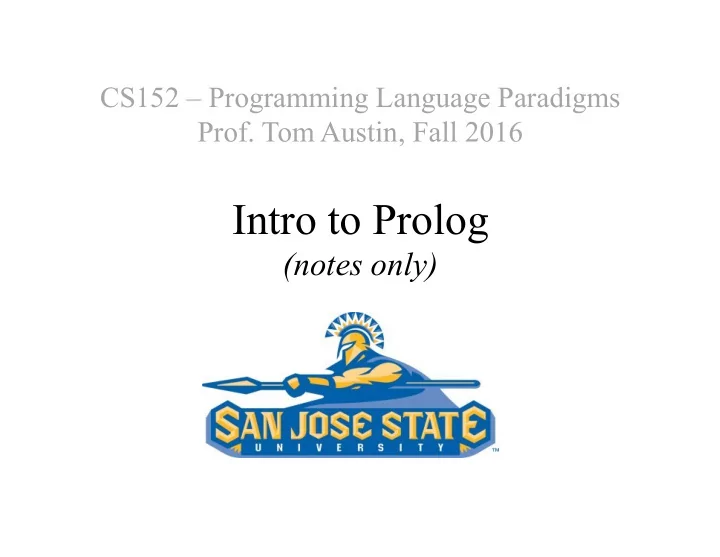

CS152 – Programming Language Paradigms Prof. Tom Austin, Fall 2016 Intro to Prolog (notes only)
Deduction Propositions: 1. Socrates is a man. 2. All men are mortal. Conclusion: Socrates is mortal
About Prolog • Pro gramming in Log ic – Logic: "The science of reasoning and proof" • A declarative programming language – you specify what you want – the computer determines how to do it • A logical programming language – Relies on deductive reasoning – Reach conclusion from premises
References for Prolog • "Learn Prolog Now", http://www.learnprolognow.org • SWI-Prolog website (contains manual and tutorials), http://www.swi-prolog.org • "NLP with Prolog in the IBM Watson System", http://www.cs.nmsu.edu/ALP/2011/03/natural- language-processing-with-prolog-in-the-ibm- watson-system/
Facts Socrates is a man. Helen is a woman. In Prolog: man(socrates). woman(helen).
Rules Man is mortal. Woman is mortal. In Prolog: mortal(X) :- man(X). mortal(X) :- woman(X). X is a True if either variable statement matches.
More facts and rules. married(socrates). married(helen). husband(Person) :- comma is "and" married(Person), man(Person).
Query: Is Socrates mortal? The prompt ?- mortal(socrates). true . Prolog result in bold.
Query: Who is mortal? ?- mortal(Person). Person = socrates ; Person = helen. Hit semicolon for more results, period to quit.
Lab: Murder Mystery • See Canvas for details.
Recommend
More recommend